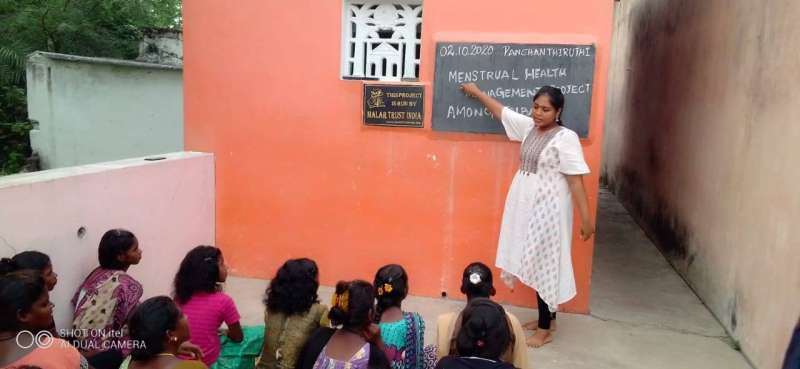Research Reveals Alarming Insights on Menstruation Perception Among Tribal Girls in Jhabua District

Jhabua, India – A recent sociological study titled "Sociological Analysis on
Menstruation Perception Among Two Tribal Groups of Jhabua District" by researcher
Yash Singh Sisodiya has unveiled concerning insights into the perceptions and practices
surrounding menstruation among tribal girls in the Bhil and Bhilala communities. The
research highlights significant gaps in awareness and the impact of social taboos on
menstrual health management.
Key Findings
The study, which employed a mixed-method research approach, revealed that the
experience of menarche—the first occurrence of menstruation—was predominantly
marked by fear and confusion. A staggering 60% of respondents reported feeling fear,
while 48% cried during their first menstruation, indicating a lack of preparedness and
support.
Awareness surrounding menstruation was alarmingly low. The study found that 86.67%
of Bhil girls and 70% of Bhilala girls had no prior knowledge of menstruation before
experiencing it. This lack of awareness extends to the menstrual cycle itself, with only a
small proportion of girls informed about what to expect.
The role of maternal education in influencing menstrual awareness was also examined.
Surprisingly, the findings indicated that mothers' literacy levels did not significantly
impact their daughters' understanding of menstruation, as most mothers in the study
were not highly educated.
Menstrual Hygiene Practices and Taboos
The research further explored menstrual hygiene practices among the girls. While most
were aware of sanitary pads, many did not use them, often resorting to unhygienic
alternatives due to a lack of awareness about health and hygiene practices. This
situation is exacerbated by pervasive social taboos and restrictions related to
menstruation, which often result in poor menstrual health management and reinforce
silence around the topic.
Moreover, awareness regarding menopause was found to be significantly low, with
many women confusing it with menstruation and failing to recognize the transition's
implications.
Methodology
The research utilized a mixed-method approach, combining qualitative and quantitative
methods. Structured questionnaires were administered for interviews, and empirical
field observations were conducted. Due to the COVID-19 pandemic, a convenient
sampling method was adopted, resulting in a small sample size of 25 confirmed
respondents who consented to face-to-face interviews.
Objectives and Implications
The primary objectives of the study were to identify perceptions regarding menstruation
and menopause among the Bhil and Bhilala communities and to explore the taboos,
social restrictions, and health problems faced by girls and women during these phases.
Based on empirical observations and interviews, the study aims to provide actionable
suggestions to overcome social taboos and improve menstrual health management.
This research underscores the urgent need for targeted interventions to enhance
menstrual health education and awareness among tribal communities in India. By
addressing the gaps in knowledge and challenging harmful taboos, stakeholders can
foster a healthier environment for young girls navigating the complexities of
menstruation.
As India strives for gender equality and improved health outcomes, studies like this
highlight the critical importance of understanding and addressing the unique challenges
faced by marginalized communities.



 गुजरात हाईकोर्ट का महत्वपूर्ण आदेश, सरकारी भूमि पर बनी दरगाह वक्फ संपत्ति नहीं हो सकती
गुजरात हाईकोर्ट का महत्वपूर्ण आदेश, सरकारी भूमि पर बनी दरगाह वक्फ संपत्ति नहीं हो सकती गुजरात कोर्ट ने जैन मुनि शांतिसागर को रेप केस में 10 साल की सजा और 25 हजार का जुर्माना किया
गुजरात कोर्ट ने जैन मुनि शांतिसागर को रेप केस में 10 साल की सजा और 25 हजार का जुर्माना किया



